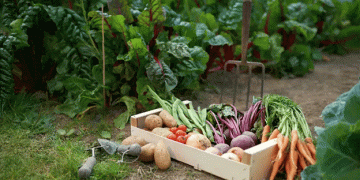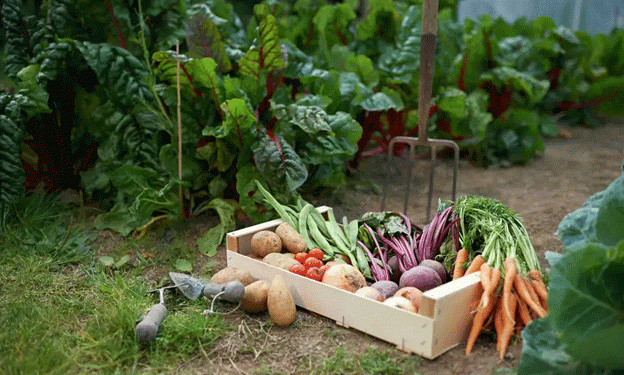The recent pandemic has sparked a renewed interest in gardening, particularly among those in West Texas looking to grow their own food and cultivate beautiful, sustainable landscapes. This trend reflects a broader shift towards self-sufficiency and connecting more deeply with nature. In West Texas, where the arid climate can pose challenges, creating an edible landscape requires thoughtful planning and the right strategies. By integrating gardens into our landscape plans, we can not only grow our own food but also enhance mental well-being.
Edible Landscapes and Mental Health Benefits
John Cappadonna and Kristi Clemmer are prime examples of successful West Texas gardeners who have turned their expertise into beautiful, productive spaces. John’s Facebook page, “West Texas Vegetable Gardening,” is a valuable resource for anyone looking to start their own garden. From composting tips to harvesting techniques, John provides detailed instructions that help fellow gardeners succeed. Kristi Clemmer’s garden at Odessa College offers a model for integrating food production with community support, providing fresh produce for students and staff.
Recent data highlights the mental health benefits of gardening. A study from the American Horticultural Therapy Association found that spending time in green spaces can significantly reduce stress, anxiety, and depression. This is particularly relevant for West Texas residents who may feel isolated due to the region’s vast distances and harsh weather. Biophilic landscaping—a design approach that incorporates nature into our living spaces—can provide a sense of peace and well-being. Wellness gardens, in particular, emphasize the use of fragrant herbs, soothing flowers, and the calming sounds of wind chimes, which can help improve mood and overall mental health.
Sustainable Landscaping Practices
Sustainable gardening practices are essential in arid regions like West Texas. Using native plants that are drought-tolerant helps conserve water and reduces the need for chemical fertilizers and pesticides. Raised beds are a popular choice for homeowners looking to grow vegetables, fruits, and herbs in their landscapes. They not only make gardening more manageable but also reduce soil erosion and improve soil health. Additionally, the trend towards meadow-inspired landscapes is gaining traction. By planting native grasses, wildflowers, and trees, gardeners can create low-maintenance, visually stunning spaces that attract local wildlife and enhance biodiversity.
Recent rainfalls, such as the 2 inches received overnight in West Texas, provide the necessary boost to these sustainable gardens, encouraging plant growth and increasing resilience against drought. This makes the landscape more vibrant and adds to the overall beauty and sustainability of the area.
Gardening in West Texas is not just about growing food—it’s a way to connect with nature, reduce stress, and create a beautiful, sustainable environment. By integrating garden spaces into our landscapes, whether through edible gardens, biophilic designs, or native plantings, we can foster mental health and create a more resilient, self-sufficient community. The use of raised beds, native plants, and thoughtful landscaping can make gardening more accessible and enjoyable, even in challenging climates.
For those interested in more information or assistance with starting their own garden, the AgriLife office in Odessa and Midland is available for consultation. Additionally, the West Texas Gardening blog offers a wealth of resources and past articles to guide you on your gardening journey.































